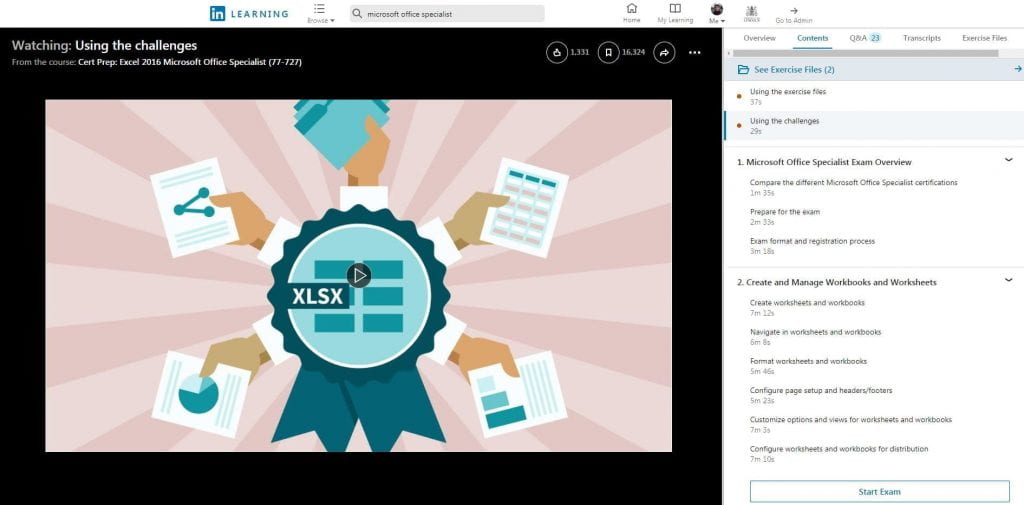Aaron Good | 3rd Year Media Production |
In late 2019 I was given the opportunity to trial run the University’s roll out of specialist exams for Microsoft Office – a suite of programs so ubiquitous that I’m using it to write this very blog – to those undertaking the Lincoln Award.
This past week I undertook my exam in Microsoft PowerPoint 2016 and can proudly say I am now a Microsoft Office Specialist. This post aims to reflect not only on the exam and qualification itself, but also how I feel the digital tools made available to us by the University considerably aided in the lead-up.
As somebody that has spent the last six years in education learning video production, a coursework-based discipline from BTEC to BA, I haven’t taken an exam since I was 16 (years of feeling smug about my BSc friends having to revise for exams and suddenly I was in the firing line – what goes around comes around!).
This was unsurprisingly quite a steep learning curve, exams are naturally a much different beast to approach than an essay, thankfully however I had access to hours of preparatory material made available to me via LinkedIn Learning (Click here to access LinkedIn Learning).

This course, freely available along with countless others to anybody with a University account, not only broke down the features and how to use them in Microsoft PowerPoint 2016, but was also aimed specifically at those looking to take the MOS exam and therefore the best strategies when approaching it. The exam is 50 minutes in length and rigidly structured into 7 tasks, each of which could have anywhere between 4 and 7 steps of varying complexity – meaning you don’t have the luxury of dawdling on a step for risk of not completing later tasks. I’m a perfectionist by nature and will occasionally bog myself down concentrating on a minor detail forgetting to step back and consider the project as a whole (unless my managers are reading, in which case I’m an efficient and dexterous worker. Perhaps a raise?) however the LinkedIn Learning course broke down how best to manage your time.
Without this advice I don’t think I’d have performed nearly as well in the exam, and potentially wouldn’t have finished it. I truly believe even if you’re proficient in the Microsoft Office Suite and are looking to undertake the exams, taking the course related to your chosen subject would be incredibly valuable.
The University has set me up as somebody both willing and able to learn proactively, using this independence afforded to me to earn additional qualifications offered. I’m sure coming out of the other side of this experience that this won’t be the first MOS exam I take, and I feel each additional qualification earned not only makes me more desirable to potential employers but also benefits me as an individual.
To anybody considering the exams, I say go for it!
This current opportunity for students is available as part of the Lincoln Award via the careers centre and costs only £10 per exam. If you are interested and would like to find more please contact digitaleducation@lincoln.ac.uk